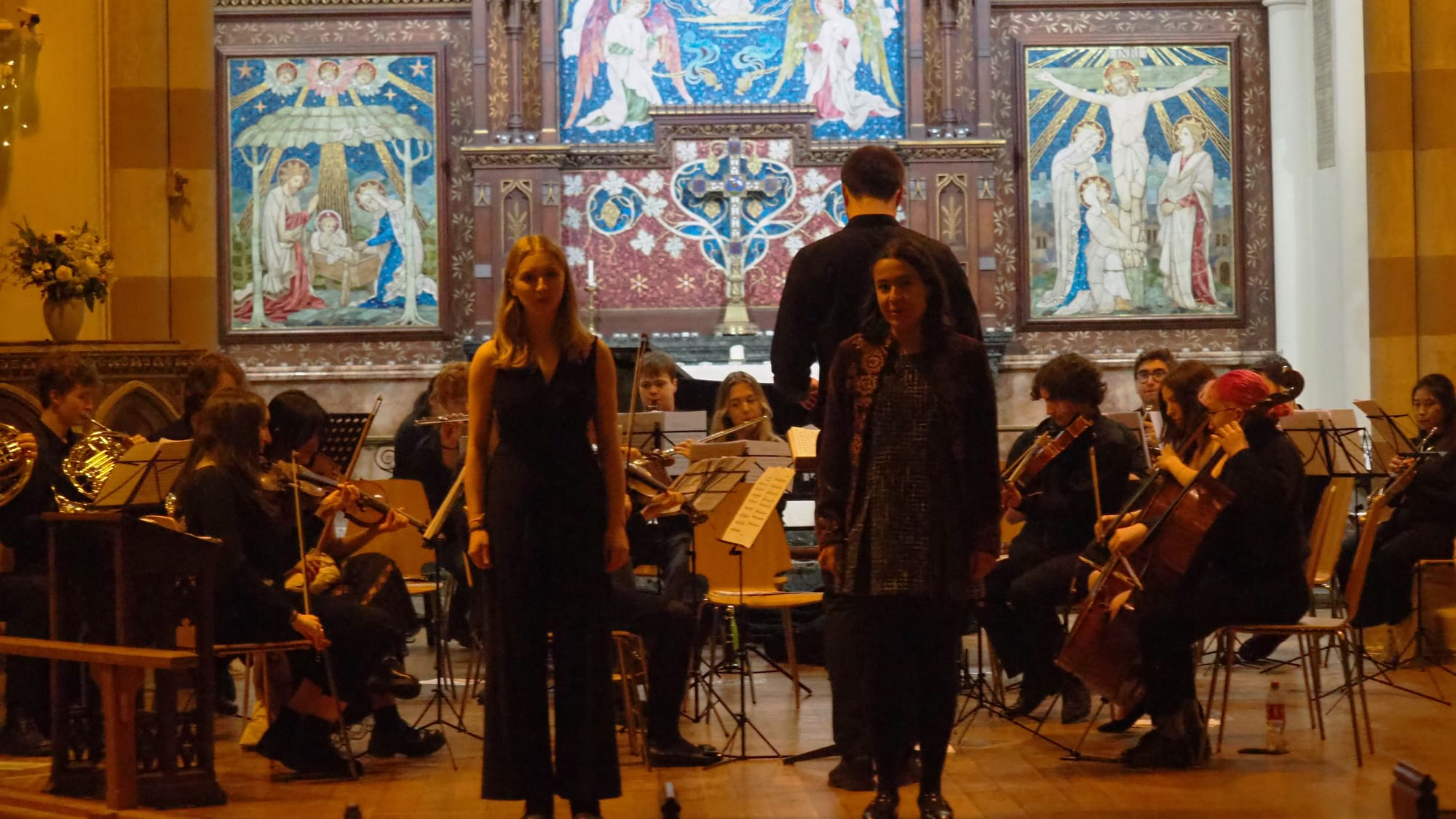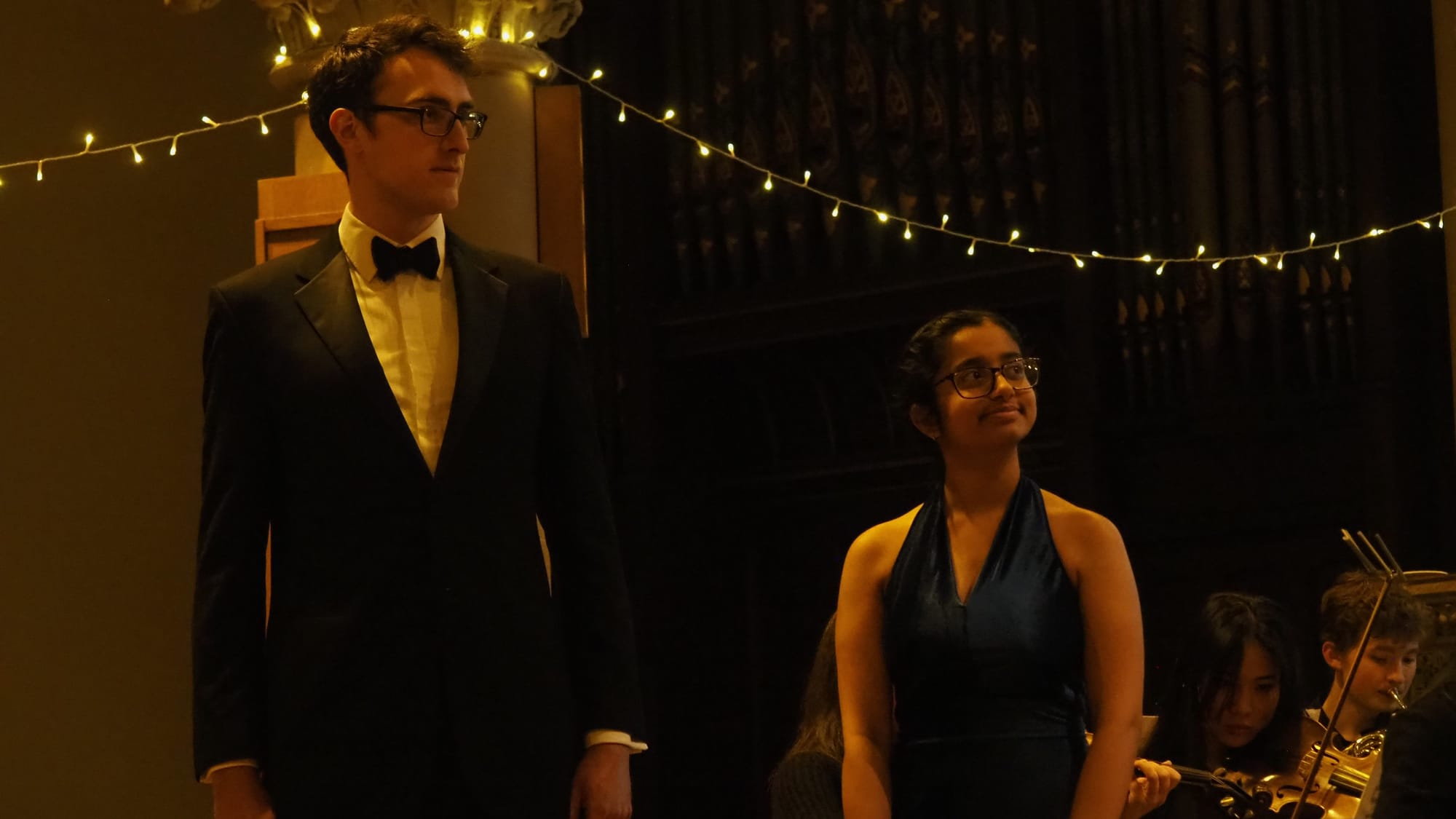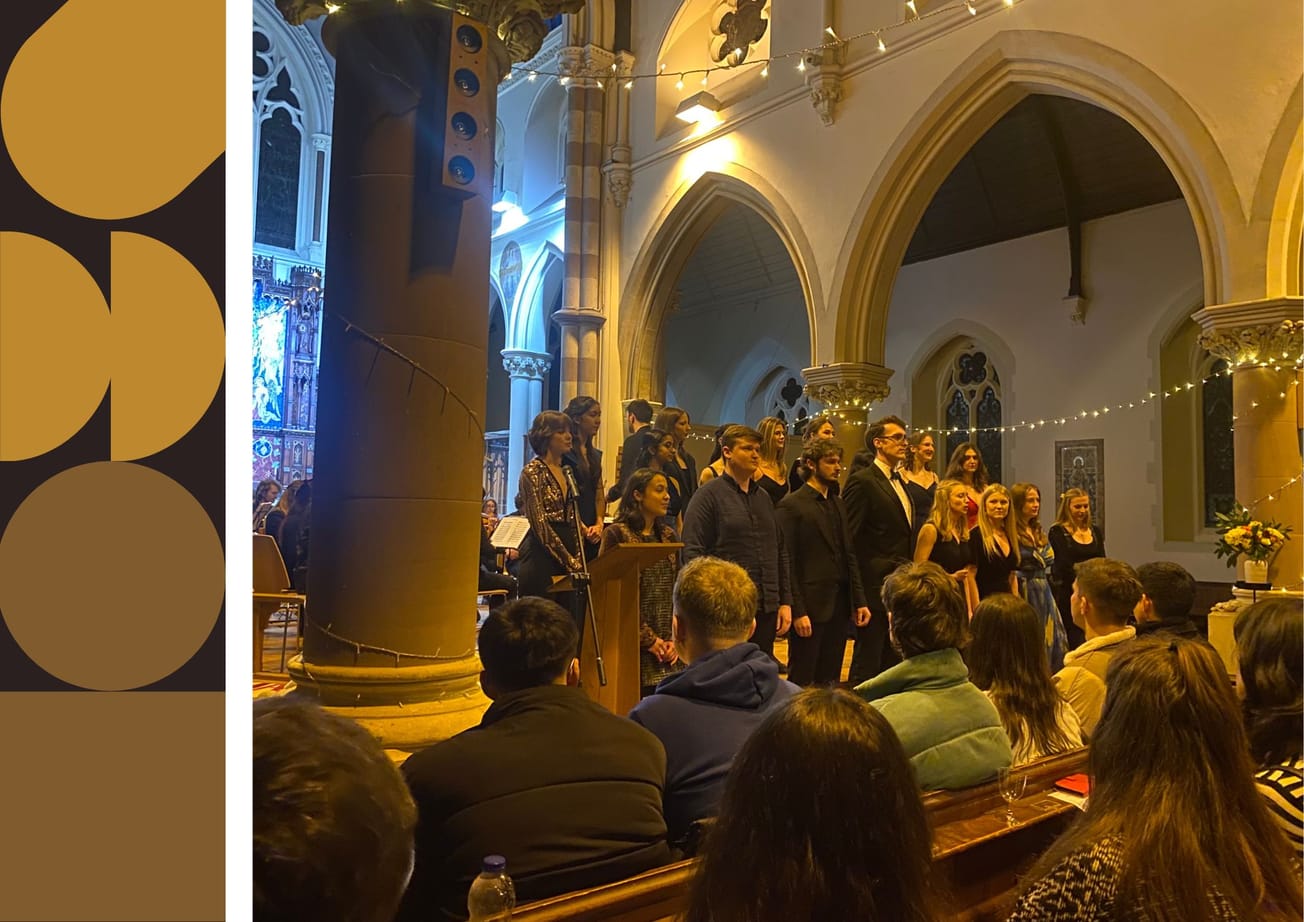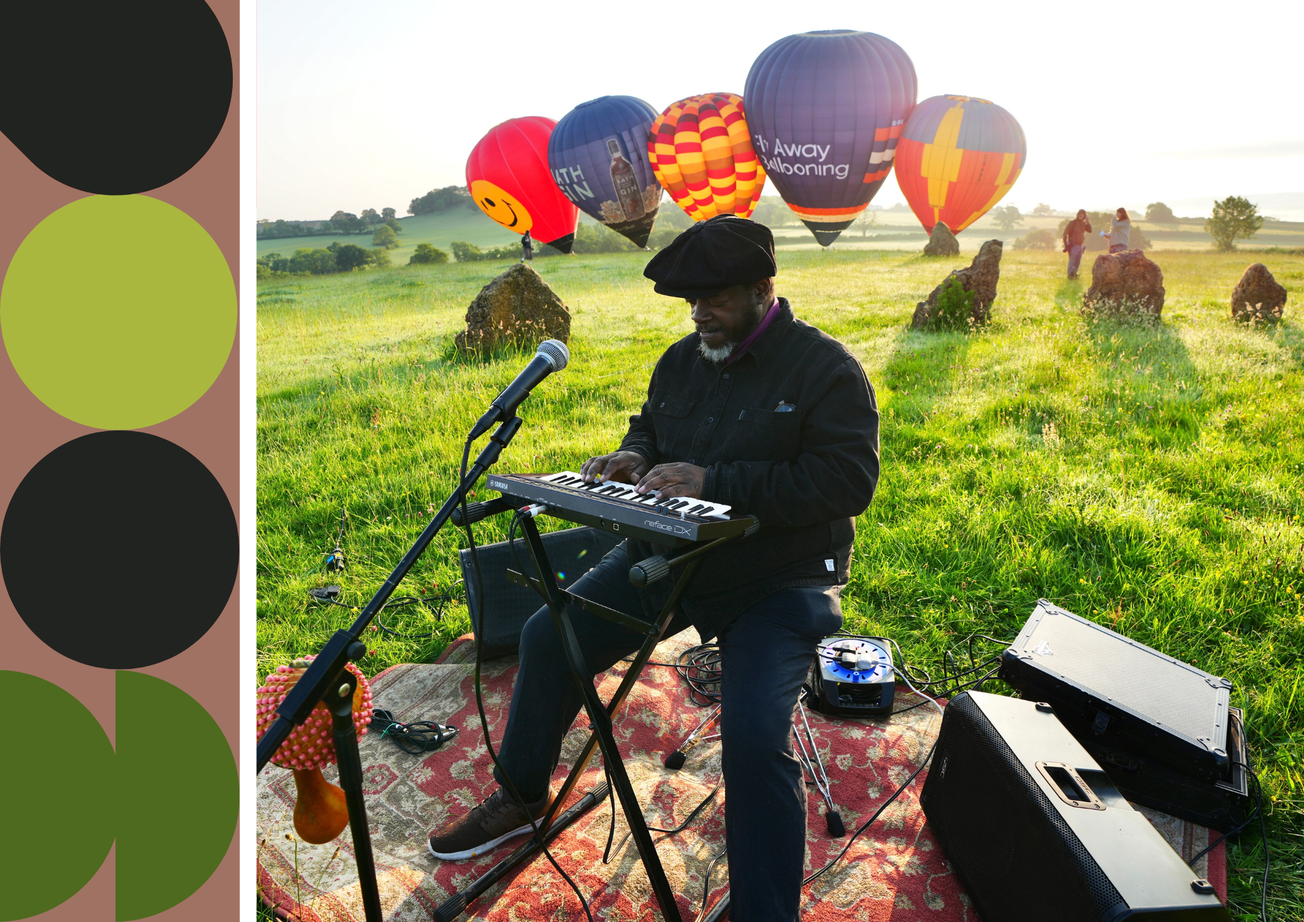By Benji Chapman, Co-Deputy Music Editor
Bristol may be known first-hand for its thrivingly eclectic dance and electronic music scene, but a taste of the opera served by Bristol University Opera Society (BOpS) inside the tranquil St Paul's Church proved that you don't need a massive sound system to be transported to euphoric soundscapes. The night was a showcase of both University of Bristol students' technical prowess and a celebration of the matrimony between the comic and tragic aspects of opera's dramatic nature, as I would discover in the experience.
My night at the opera was a first. Having experienced classical music only in my school choir, I was venturing almost totally blind into new musical territory. The closest sense of awareness of opera I had encountered was during my year-eight stint in the Verdi Requiem, an activity which I soon found out could not be further from the magic of opera's dramatic nature.
Opera, as I was quick to discover, is so much more than a musical performance. Its foundation and extensive history in theatre lends to it a quality which is unlike the vast majority of shows I've seen in my two years of experience in Bristol's live music scene, it was a night full of so much more than simply the numerous talents of the musicians and singers.
Having most recently been indoctrinated somewhat inevitably into Bristol's well-known Drum and Bass scene, it was a performance which could not have been more different from my usual Saturday night plans. As I took my seat in St Paul's nave I sipped my glass of white wine in tentative anticipation for the night I had next to no expectations for: a far cry from the usual, hurried environment of a club's manic pre-drinks.
Replacing last weekend's inebriated venture to Trinity Centre with a stroll to St Paul's Church was one which felt strangely poetic in that they would both be journeys ending at a church, although this time it felt as if the setting would be more apt for the gentler night of music in question.
As I would soon discover the preformance was one as, if not more, thrilling than any Saturday night DJ set could have been. I was quickly engaged by the vocal and instrumental talents of the society's performers. Whilst the ensemble tuned their instruments, chatter dimmed down as the musicians played in unison in a singular drone, which once universally arrived upon became a beautiful and harmonious chorus.
Dispersed between performances were passages of historical context provided by the concert's organiser, Vice President Charlotte Addy. Opera, as I would learn, originates in Italy with its etymology containing the bi-fold Latin derivation of 'work' as well as the plural of the 'opus', which encompasses several other meanings such as labour, art and necessity.

Rooted in its meaning is the suggestion that opera is an artistic tradition that blurs the lines between theatre and musical experience. To me, opera (like all the best music) is hard to find a precise definition for amid its countless influences. Melding the theatrical and musical aspects of opera, singers strutted up and down the stage while holding intense eye contact and detailing fiery romances during the feisty 'Habanera.'
Performing in German, Italian, French, and English spoke not only to the performers' abilities but also to BOpS' dedication as a society in their showcase of as many different operas as possible. Acknowledgment of opera's rich history and various presentations in other countries reflected how the group had reinterpreted and adapted the classical genre, with a stand-out performance of 'All I Ask Of You' from the more modern Phantom Of The Opera echoing this point.
The works in English came near the end of the night, being the first ones I could clearly ascertain the narratives of. As I would find between my listening and conversations with audience members, the stories of operatic works often verge on tragic, comic, and occasionally downright ridiculous. I soon learned that opera is perhaps best engaged with less seriously than I initially assumed its classical history would denote.

The close of the night brought a sombre end to proceedings however. A performance of 'One Day More' from Les Misérables looked to the future and united members of the chorus as respective student talents took the stage. Though the piece was melancholy, it was difficult to be miserable in light of such a wholesome joining of the spread of vocal styles on offer.
If the intention of BOpS was to educate and entertain, they did more than deliver. The setting of a St Paul's Church could not have been more appropriate for the night: its aesthetic and architecture nurtured a sweeping feeling of reverence as the booming voices of the ensemble soared below the arches of the church's ceiling.
My taste of the opera was delicious and one which ought to be savoured on the palate. It left me hungry for more, a flavour I would strongly recommend to any skeptic of the genre no matter their previous listening habits.
Featured Image: Benji ChapmanHave you been to the opera before?








